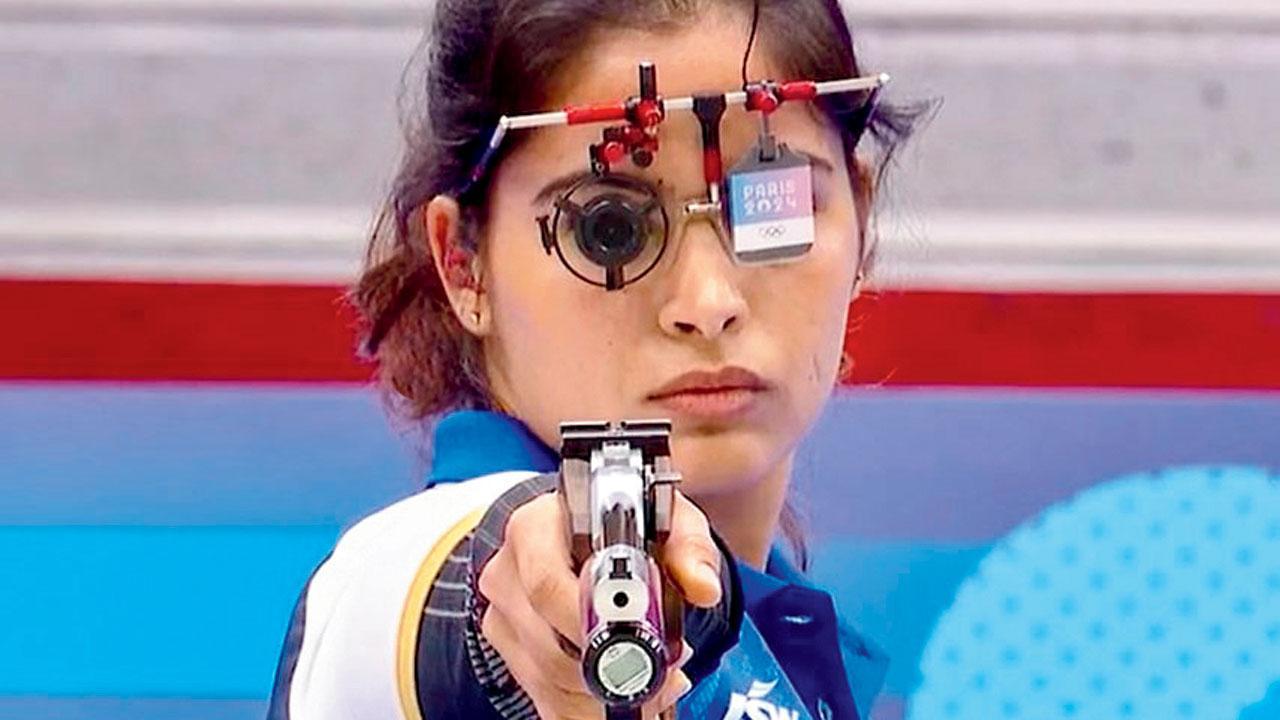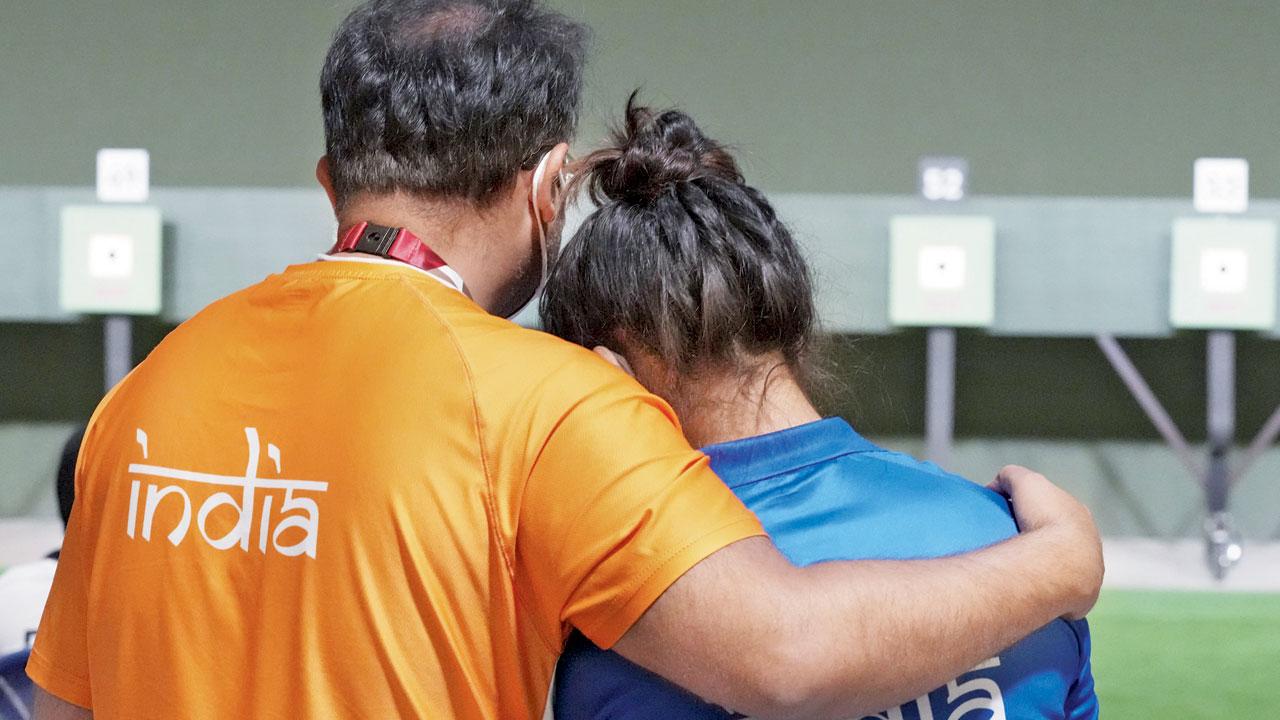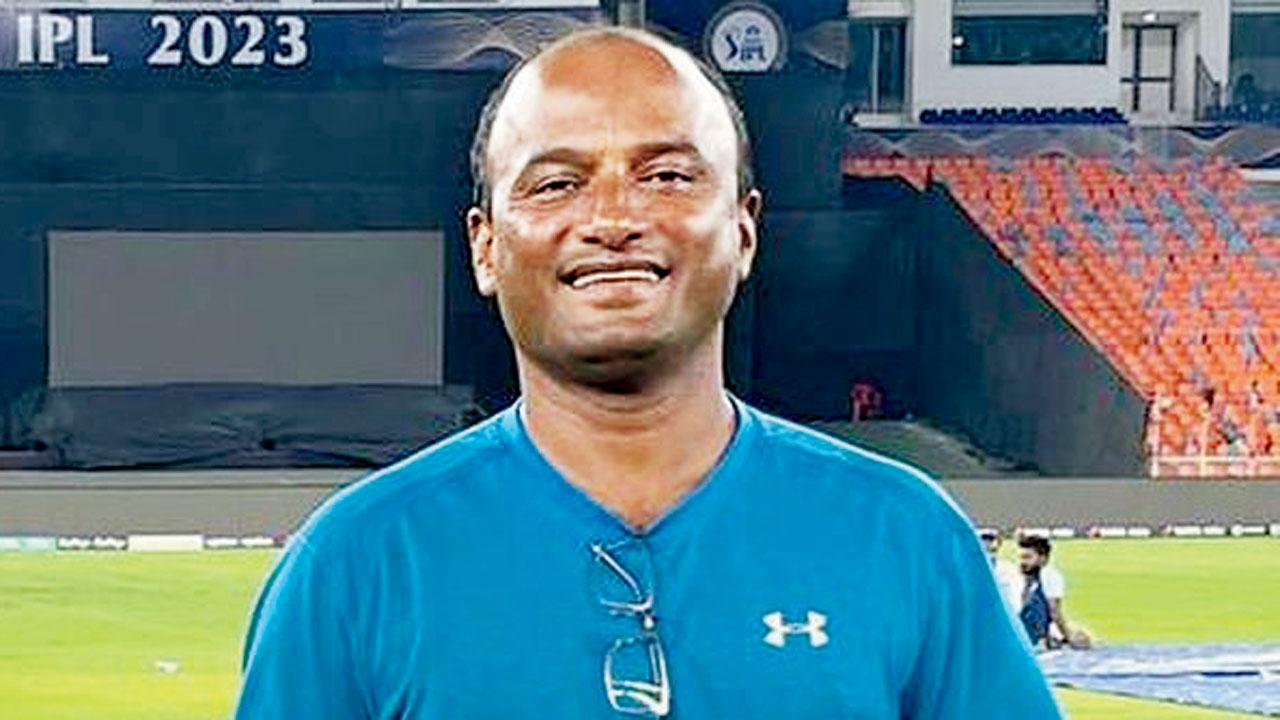Manu Bhaker’s recent plea for her fans to not be angry in case she doesn’t win more Olympic medals highlights the pressure that those in high-stakes roles routinely face. Experts share how to cope

Ace shooter Manu Bhaker shoots for the bronze medal at the Women’s 10m Air Pistol in the Olympic Games 2024 in Paris. File Pics
After winning two bronze medals at the ongoing Paris Olympics, and making history as the first female shooter from India to bag a medal at the Olympics, Manu Bhaker’s message to her fans included a humble plea for them before her third event to “not get angry” if she couldn’t add another accolade to her already impressive tally.
The 22-year-old voiced a fear that resonates with many athletes, especially those who find themselves in the national spotlight, shouldering the burden of 1.4 billion expectations. And while Bhaker may have gracefully handled the pressure and even gone on to win a second bronze, and earn the distinction of becoming the first Indian woman to win two medals at an Olympics, her words were a timely reminder of how even the most accomplished individuals are not immune to feeling the heat of public scrutiny, within and beyond the sports arena.
Mental fortitude
“The reason why mental conditioning is such an important part of the game is because it’s crucial for athletes to handle pressure. The media is watching, there are expectations from the athletes’ parents and, of course, the audience is breathing down your neck. It is very important to be able to control your thoughts as the pressure can negatively impact your performance on the field. During my time as a cricketer, I would lose my sleep and appetite. I would often struggle with headaches. While I realise that pressure is an inevitable part of the game, it taught me the significance of strong mental skills,” says Kiran Powar, a professional cricket mentor.

Coach Ronak Pandit (left) with Bhaker after she failed to qualify for the finals of the 10m Air Pistol at the Olympics Games 2021 in Tokyo
Kunashni Parikh, a clinical and sports psychologist, who has been the former vice-captain and goalkeeper for the India U-17 football team as well as a state-level gymnast, shares that pressure can affect an athlete’s self-esteem, self-image and self-confidence. “Losses and setbacks on the field or court can trigger guilt and anxiety for future performances. In scenarios where the athlete doesn’t succeed, they can begin to question their worth and can even go into depression,” she says.
Drawing parallels to corporate India, leadership coach Farzana Suri points out that performance pressure can take a toll on aspiring and established leaders alike. “In many ways, it is akin to juggling flaming swords while riding a unicycle — stress, poor decision-making and burnout are all part of the act. High expectations can leave you frazzled and overworked, which isn’t great for strategic thinking,” she explains.
Also Read: Constant emotional and physical exhaustion may be a sign of burnout: Experts

When accepting feedback, consider the source and whether it aligns with the resources you have at hand to implement it
Drown out the noise
All the experts emphasise that the best way to cope is to distinguish critiques from criticism and personal attacks, and to take the positives from each experience.
>> Change what’s in your control: “After the match, go over what went wrong and what you can learn from it. Write these down on a piece of paper. When you are practising, focus on these aspects so that you can improve your game,” Powar advises. When it comes to sports especially, everyone has an opinion regardless of whether they understand the intricacies of the game. Here, it’s essential to focus on the facts of the performance and analyse whether the feedback aligns with whether you have the resources at hand to execute what is being suggested. Also, consider who the advice is coming from. If it is a coach or a trusted senior, use their insights to improve your game,” says Parikh.

Meditation or journalling can help you focus on the present, and drown out the surrounding noise. Representation Pics
>> Develop a toolkit: In the corporate sphere, Suri suggests assessing feedback based on its merits, and not the delivery. “Look for actionable points and not emotional tones. Remember, constructive criticism helps you grow, while negativity often lacks useful insights. If the feedback isn’t clear, ask for specific examples or suggestions,” she adds. Certain techniques can help you to develop mental fortitude and enable you to handle pressure more constructively, says Parikh, elaborating that she helps athletes with breathing techniques, visualisation skills, pre-performance routines and match analysis strategies. “Journalling can help immensely with self-reflection, as can meditation — the latter enables you to keep your mind in the present, drown out the noise and focus only on what you need to. All of these should be regular practices in your mental fitness routine,” she says.

Kiran Powar
>> Seek support: “Communicate your needs, your limits, progress, and challenges to your superiors. This can help you avoid misunderstandings, clarify expectations, negotiate priorities, and seek support,” Suri suggests. While Powar recommends that the athletes he coaches steer clear from tracking news updates, or even social media after a disappointing match, Parikh highlights not minimising your emotional state after the performance. “It’s crucial to analyse performances not just from a cognitive standpoint but also from an emotional perspective. Think about how you feel. Address your fears and any feelings of embarrassment and guilt. Learn to differentiate between your personal expectations and the expectations that others have from you. If necessary, seek the support of a therapist, counsellor or mentor,” she summarises.

Kunashni Parikh
In her third event (Women’s 25m Pistol event), Bhaker came fourth in a tough battle with her opponent. A salute-worthy effort overall, but we hope the tears that flowed soon after weren’t an indicator of the same pressure, which made her utter those telling words in the first place.
 Subscribe today by clicking the link and stay updated with the latest news!" Click here!
Subscribe today by clicking the link and stay updated with the latest news!" Click here!








